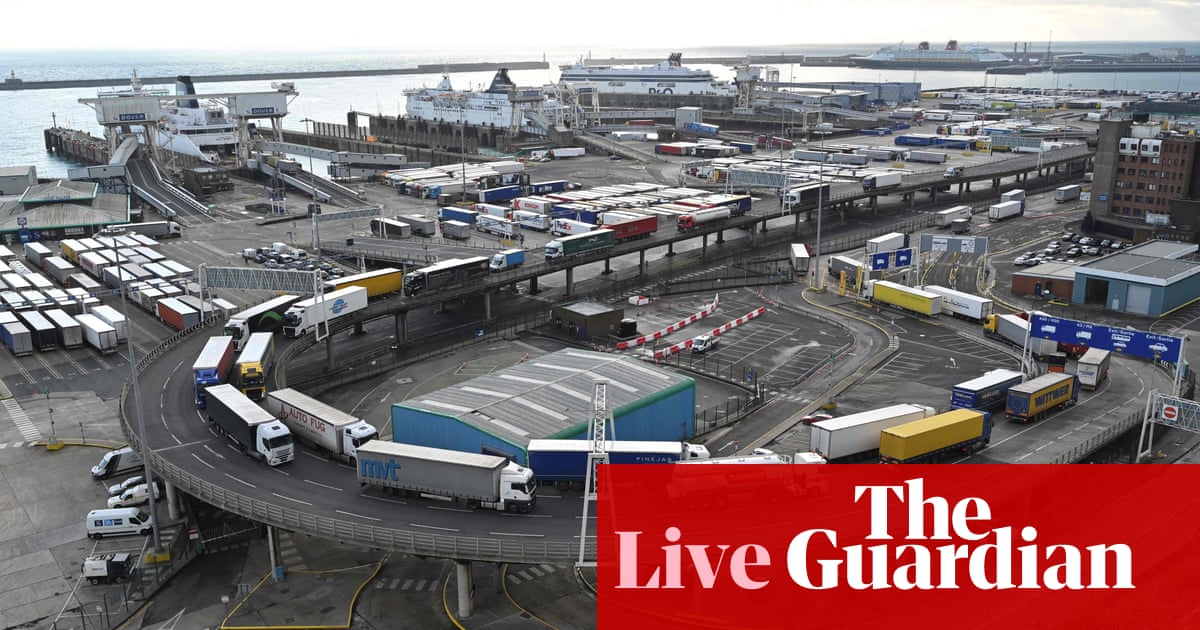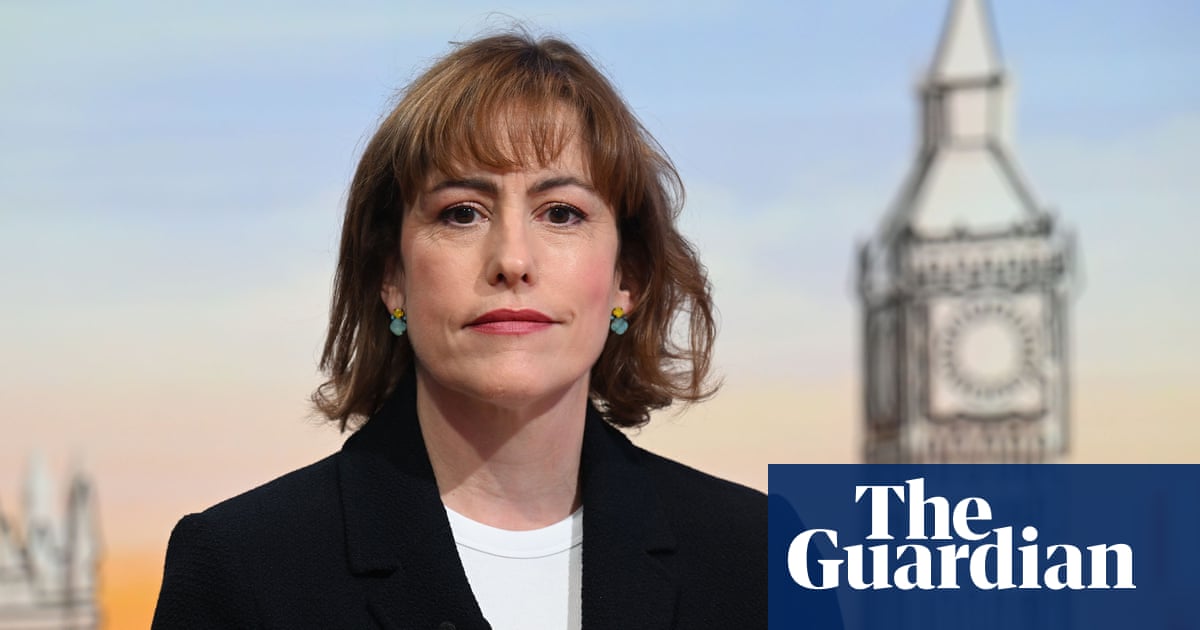‘Hammer blow’ of £145 Brexit food import charges; oil prices near $90 – business live | Business


Brexit checks will mean ‘higher food prices’ – UK businesses
Good morning, and welcome to our live coverage of business, economics and financial markets.
Business groups have described the imposition of steep fees for individual food imports into the UK as a “hammer blow” for small restaurants, cafes and delis.
The UK government has revealed that importers of animal products from the EU will pay £29 per type of item – such as an individual pack of cheese or sausage. The charges will be capped at £145 per shipment, and will start on 30 April, with additional checks in October.
The government has repeatedly delayed the introduction of sanitary checks on meat, dairy and the majority of plants from the EU, fearing that businesses were not prepared for the changes.
Business groups are not at all happy with the newly announced fees.
William Bain, head of trade policy at the British Chambers of Commerce, called for the UK government to U-turn on imposing the fees, which he said would risk higher food prices. He said:
This is an extremely disappointing decision by Defra on the common usage charge. The level of import charges shows scant regard to the interests of both businesses and consumers.
A flat rate fee for bringing most animal and plant products into the UK is a hammer blow for small- and medium-sized importers. It’s also deeply concerning for retailers, cafes and restaurants.
Phil Pluck, leader of food logistics lobby group the Cold Chain Federation, said:
Ultimately, this will increase business costs and food prices and potentially lower choices for the shopper.
According to the government, the additional costs of the border checks and new certification requirements could add another £330m a year to business costs. Bigger businesses will be able to spread the costs over a lorry load, but it could make things much more difficult for smaller businesses such as restaurants or delis who tend to import some specialist products in small batches. (Individuals on the Dover ferry or Eurostar train will be exempt.)
You can read more about deli owners’ concerns here:
Oil prices near $90 a barrel
Oil prices have risen as traders weighed the Opec+ cartel’s decision to press member countries to cut production and the continuing strength of the US economy.
The price of a barrel of Brent crude oil for June delivery, the global benchmark, rose to a high of $89.71 on Thursday morning, after nearly touching $90 on Wednesday. West Texas Intermediate, the North American benchmark, hit a high of $85.79.
Prices have been sustained in recent months by concerns that the Israel-Hamas war could spill over into nearby countries and affect oil supply, while Russia’s full-scale invasion of Ukraine has also meant higher prices in some parts of the world because of sanctions.
Analysts at Deutsche Bank, led by Henry Allen, said that oil price increases could give central banks “signs of concern about inflation, as oil prices closed at their highest levels since October”. They wrote that oil price increases are “filtering through into consumer prices as well, and the AAA’s daily average of US gasoline prices was up to $3.549/gallon as of Tuesday, which is also its highest since October”.
The agenda
-
9am BST: Eurozone HCOB services purchasing managers’ index (PMI) (March; previous: 50.2 points; consensus: 51.1)
-
9:30am BST: UK S&P Global services PMI (March; prev.: 53.8 points; cons.: 53.4)
-
1:30pm BST: US balance of trade (February; prev.: -$67.4bn; cons.: -$67.3bn)
-
1:30pm BST: US initial jobless claims (30 March; prev.: 210,000; cons.: 214,000)
Key events
Vodafone and Three UK merger faces in-depth competition investigation
Vodafone and Three UK face the prospect of an in-depth investigation by the UK’s Competition and Markets Authority (CMA) over their plan to merge UK operations after they offered no undertakings to the regulator.
The CMA had announced last month that an in-depth investigation was likely, unless the companies offered satisfactory undertakings to avert it.
The in-depth investigation will come as little surprise, given the controversy surrounding a plan that would reduce the number of UK telecoms networks from four to three.
The deal will bring 27 million customers under a single network provider, leapfrogging EE, owned by BT, and Virgin Media O2, owned by Spain’s Telefónica and the US-listed company Liberty Global.
The initial “Phase 1” investigation found concerns that the transaction could lead to higher prices for customers and lower investment in UK mobile networks. Phase 2 will look at this in more detail, and will try to work out if these concerns can be addressed.
The biggest faller on London’s FTSE 100 this morning is packaging company Mondi, down 2.8% as it extends takeover talks.
Mondi is courting its UK cardboard box rival, DS Smith, and the two companies agreed a £55.14bn deal on 7 March. However, US competitor International Paper has since gatecrashed with its own proposed takeover worth £5.7bn.
Under UK takeover rules Mondi had until 5pm today to make a firm offer – known as “put up or shut up” rules. However, DS Smith has asked for and received an extension until 5pm on 23 April.
DS Smith said:
DS Smith is continuing discussions with Mondi regarding the Combination. There can be no certainty that any firm offer will be made. A further announcement will be made if and when appropriate.
There is relatively little movement on Europe’s main stock markets in the opening minutes of trading.
Here are the opening snaps from Reuters:
-
EUROPE’S STOXX 600 FLAT
-
BRITAIN’S FTSE 100 UP 0.1%
-
FRANCE’S CAC 40 FLAT, SPAIN’S IBEX UP 0.3%
-
EURO STOXX INDEX FLAT; EURO ZONE BLUE CHIPS FLAT
-
GERMANY’S DAX DOWN 0.1%
Brexit checks will mean ‘higher food prices’ – UK businesses
Good morning, and welcome to our live coverage of business, economics and financial markets.
Business groups have described the imposition of steep fees for individual food imports into the UK as a “hammer blow” for small restaurants, cafes and delis.
The UK government has revealed that importers of animal products from the EU will pay £29 per type of item – such as an individual pack of cheese or sausage. The charges will be capped at £145 per shipment, and will start on 30 April, with additional checks in October.
The government has repeatedly delayed the introduction of sanitary checks on meat, dairy and the majority of plants from the EU, fearing that businesses were not prepared for the changes.
Business groups are not at all happy with the newly announced fees.
William Bain, head of trade policy at the British Chambers of Commerce, called for the UK government to U-turn on imposing the fees, which he said would risk higher food prices. He said:
This is an extremely disappointing decision by Defra on the common usage charge. The level of import charges shows scant regard to the interests of both businesses and consumers.
A flat rate fee for bringing most animal and plant products into the UK is a hammer blow for small- and medium-sized importers. It’s also deeply concerning for retailers, cafes and restaurants.
Phil Pluck, leader of food logistics lobby group the Cold Chain Federation, said:
Ultimately, this will increase business costs and food prices and potentially lower choices for the shopper.
According to the government, the additional costs of the border checks and new certification requirements could add another £330m a year to business costs. Bigger businesses will be able to spread the costs over a lorry load, but it could make things much more difficult for smaller businesses such as restaurants or delis who tend to import some specialist products in small batches. (Individuals on the Dover ferry or Eurostar train will be exempt.)
You can read more about deli owners’ concerns here:
Oil prices near $90 a barrel
Oil prices have risen as traders weighed the Opec+ cartel’s decision to press member countries to cut production and the continuing strength of the US economy.
The price of a barrel of Brent crude oil for June delivery, the global benchmark, rose to a high of $89.71 on Thursday morning, after nearly touching $90 on Wednesday. West Texas Intermediate, the North American benchmark, hit a high of $85.79.
Prices have been sustained in recent months by concerns that the Israel-Hamas war could spill over into nearby countries and affect oil supply, while Russia’s full-scale invasion of Ukraine has also meant higher prices in some parts of the world because of sanctions.
Analysts at Deutsche Bank, led by Henry Allen, said that oil price increases could give central banks “signs of concern about inflation, as oil prices closed at their highest levels since October”. They wrote that oil price increases are “filtering through into consumer prices as well, and the AAA’s daily average of US gasoline prices was up to $3.549/gallon as of Tuesday, which is also its highest since October”.
The agenda
-
9am BST: Eurozone HCOB services purchasing managers’ index (PMI) (March; previous: 50.2 points; consensus: 51.1)
-
9:30am BST: UK S&P Global services PMI (March; prev.: 53.8 points; cons.: 53.4)
-
1:30pm BST: US balance of trade (February; prev.: -$67.4bn; cons.: -$67.3bn)
-
1:30pm BST: US initial jobless claims (30 March; prev.: 210,000; cons.: 214,000)
Source link




